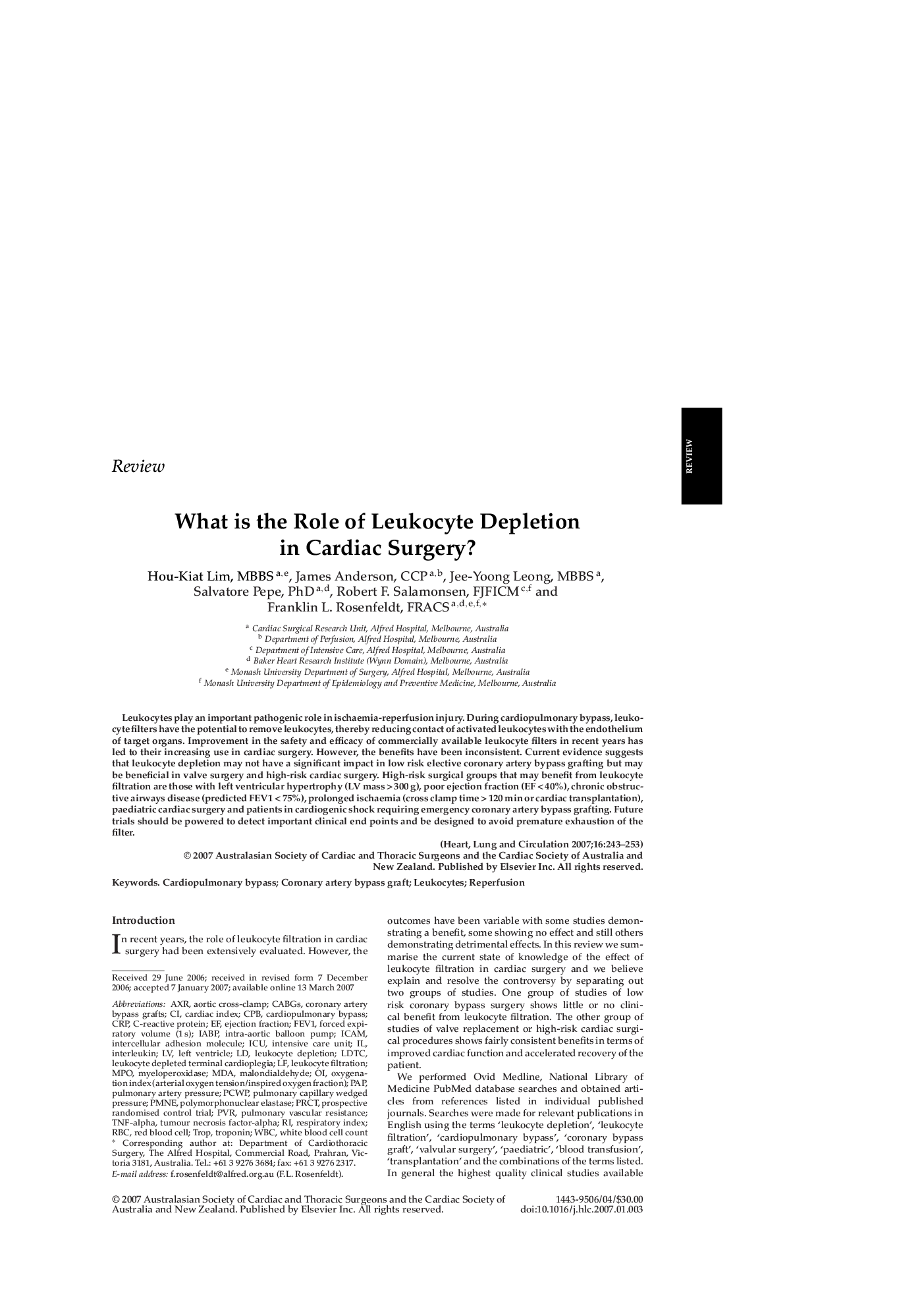| Article ID | Journal | Published Year | Pages | File Type |
|---|---|---|---|---|
| 2921344 | Heart, Lung and Circulation | 2007 | 11 Pages |
Abstract
Leukocytes play an important pathogenic role in ischaemia-reperfusion injury. During cardiopulmonary bypass, leukocyte filters have the potential to remove leukocytes, thereby reducing contact of activated leukocytes with the endothelium of target organs. Improvement in the safety and efficacy of commercially available leukocyte filters in recent years has led to their increasing use in cardiac surgery. However, the benefits have been inconsistent. Current evidence suggests that leukocyte depletion may not have a significant impact in low risk elective coronary artery bypass grafting but may be beneficial in valve surgery and high-risk cardiac surgery. High-risk surgical groups that may benefit from leukocyte filtration are those with left ventricular hypertrophy (LV mass > 300 g), poor ejection fraction (EF < 40%), chronic obstructive airways disease (predicted FEV1 < 75%), prolonged ischaemia (cross clamp time > 120 min or cardiac transplantation), paediatric cardiac surgery and patients in cardiogenic shock requiring emergency coronary artery bypass grafting. Future trials should be powered to detect important clinical end points and be designed to avoid premature exhaustion of the filter.
Keywords
FEV1AXRICAMMDAPAPRBCPCWPWBCTNF-alphaCPBLeukocyte filtrationIABPMPOinterleukincardiopulmonary bypassintensive care unitICUleft ventricleLeukocyte depletionTroponintumour necrosis factor-alphaReperfusioncardiac indexWhite blood cell countPVRPulmonary artery pressureLeukocytesmalondialdehydePulmonary vascular resistanceintercellular adhesion moleculemyeloperoxidaseC-reactive proteinCRPintra-aortic balloon pumpcoronary artery bypass graftsCoronary artery bypass graftejection fractionred blood cellAortic cross-clamp
Related Topics
Health Sciences
Medicine and Dentistry
Cardiology and Cardiovascular Medicine
Authors
Hou-Kiat MBBS, James CCP, Jee-Yoong MBBS, Salvatore PhD, Robert F. FJFICM, Franklin L. FRACS,
